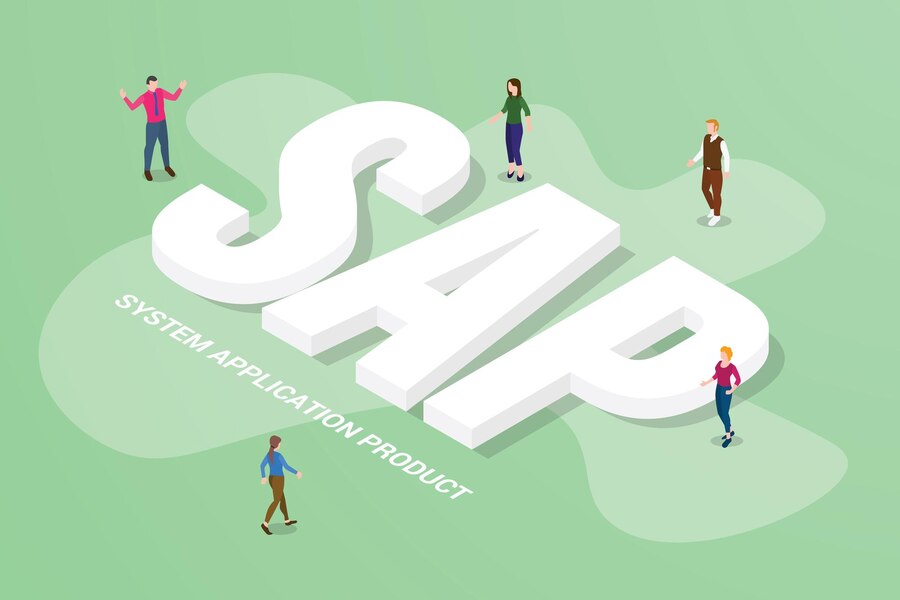SAP stands for Systems, Applications, and Products in Data Processing. It is a leading enterprise resource planning (ERP) software suite that helps businesses manage various aspects of their operations, including finance, human resources, manufacturing, supply chain, sales, and customer service. SAP software integrates different business functions and processes into a unified system, providing real-time insights and enabling efficient decision-making.

Here’s a detailed explanation of SAP:
History and Background: SAP was founded in 1972 in Germany by five former IBM employees. Initially, the company focused on developing standard software for real-time business processing. Over the years, SAP has become one of the largest software companies globally, serving businesses of all sizes and industries.
Product Portfolio: SAP offers various software solutions to address various business needs. Some of its flagship products include:
SAP S/4HANA: The latest generation ERP suite that runs on the SAP HANA in-memory database. It provides real-time analytics, simplified data models, and a modern user experience.
SAP ERP: The traditional ERP solution that covers core business functions like finance, procurement, sales, and production planning.
SAP SuccessFactors: A cloud-based human capital management (HCM) software for managing HR processes such as recruitment, performance management, and employee development.
SAP Ariba: A cloud-based procurement platform that helps businesses streamline procurement processes, manage supplier relationships, and control spending.
SAP Customer Experience (CX): A suite of CRM solutions for managing customer interactions, marketing campaigns, sales processes, and e-commerce.
Key Features and Capabilities: SAP software provides several key features and capabilities, including:
Integration: SAP integrates various business processes and departments within an organization, allowing seamless data flow and communication.
Analytics: SAP offers advanced analytics and reporting capabilities, enabling businesses to gain insights from their data and make informed decisions.
Scalability: SAP solutions are scalable and can accommodate the growth of businesses, from small startups to large enterprises.
Customization: SAP software can be customized to meet the specific needs and requirements of different industries and organizations.
Mobility: SAP provides mobile applications and interfaces, allowing users to access business data and perform tasks from anywhere, anytime.
Implementation and Deployment: Implementing SAP software involves several phases, including planning, configuration, testing, and training. Organizations can choose to deploy SAP solutions on-premises, in the cloud, or through a hybrid approach, depending on their preferences and requirements.
Benefits of SAP: Businesses that implement SAP software can benefit in various ways, including:
Improved efficiency and productivity: SAP automates manual processes and streamlines operations, leading to increased efficiency and productivity.
Better decision-making: SAP provides real-time insights and analytics, enabling businesses to make data-driven decisions quickly.
Enhanced customer satisfaction: SAP CRM solutions help businesses better understand and serve their customers, leading to improved satisfaction and loyalty.
Cost savings: By optimizing processes and resources, SAP can help businesses reduce costs and improve profitability over time.
In summary, SAP is a comprehensive ERP software suite that helps businesses manage and optimize their operations across various functions and departments. With its advanced features, scalability, and flexibility, SAP enables organizations to adapt to changing business needs and thrive in today’s competitive landscape.



